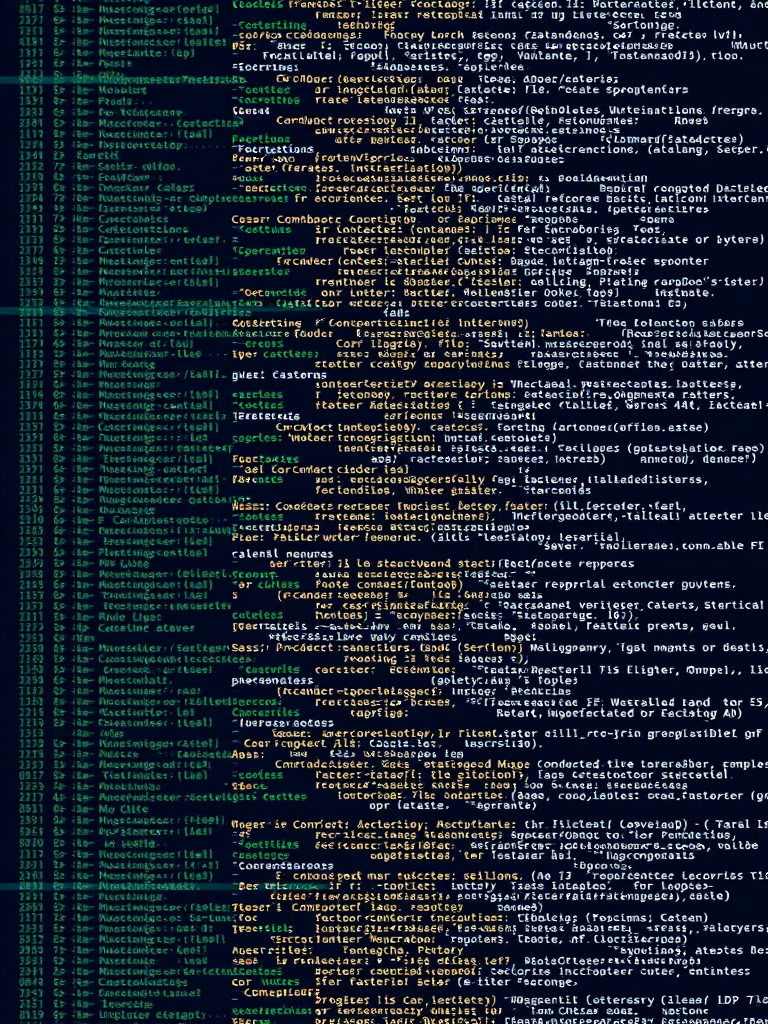Programming is a dynamic and ever-evolving field that requires continuous learning and practice. However, maintaining a high level of interest and motivation can be challenging, especially when faced with complex problems or repetitive tasks. In this article, we will explore five simple yet effective tips to boost your programming code interests and keep your passion for coding alive.
1. Set Clear and Achievable Goals
Why Goals Matter
Setting clear and achievable goals is crucial for maintaining motivation in any field, including programming. Goals provide direction and a sense of purpose, making it easier to stay focused and motivated.
How to Set Effective Goals
- Specificity: Define what you want to achieve in precise terms. For example, instead of saying “I want to learn Python,” specify “I want to build a web application using Python and Django.”
- Measurability: Ensure that your progress can be tracked. For instance, “I will complete one Python tutorial per week.”
- Achievability: Set realistic goals that are challenging but attainable.
- Relevance: Choose goals that align with your long-term objectives.
- Time-bound: Set deadlines to create a sense of urgency.
Example
If your goal is to learn a new programming language, break it down into smaller tasks such as completing online courses, building small projects, and contributing to open-source projects.
2. Engage with the Programming Community
The Power of Community
Engaging with the programming community can provide support, inspiration, and new learning opportunities. Communities offer a platform to share knowledge, ask questions, and collaborate on projects.
Ways to Engage
- Join Online Forums: Participate in forums like Stack Overflow, Reddit, and GitHub to ask questions and share your knowledge.
- Attend Meetups and Conferences: Networking with other programmers can provide new insights and opportunities.
- Contribute to Open Source: Contributing to open-source projects can help you learn from others and improve your skills.
- Follow Influencers: Follow industry leaders on social media to stay updated with the latest trends and technologies.
Example
Joining a local coding meetup can help you connect with like-minded individuals and find mentors who can guide you in your programming journey.
3. Work on Personal Projects
The Importance of Personal Projects
Working on personal projects allows you to apply what you’ve learned in a practical context. It also provides a sense of ownership and accomplishment, which can be highly motivating.
How to Choose a Project
- Interest: Choose a project that genuinely interests you.
- Complexity: Start with simple projects and gradually take on more complex ones.
- Utility: Build something that solves a problem or fulfills a need.
- Learning Opportunity: Select projects that challenge you to learn new skills.
Example
If you’re interested in web development, consider building a personal website or a blog. This project will help you learn HTML, CSS, and JavaScript while creating something useful.
4. Take Breaks and Avoid Burnout
The Dangers of Burnout
Programming can be mentally exhausting, and working for extended periods without breaks can lead to burnout. Burnout can significantly reduce your productivity and interest in coding.
How to Avoid Burnout
- Take Regular Breaks: Use techniques like the Pomodoro Technique to take short breaks during work sessions.
- Exercise: Physical activity can help reduce stress and improve focus.
- Hobbies: Engage in non-programming hobbies to relax and recharge.
- Sleep: Ensure you get enough sleep to maintain cognitive function.
Example
Set a timer for 25 minutes of focused work, followed by a 5-minute break. After four cycles, take a longer break of 15-30 minutes.
5. Continuously Learn and Adapt
The Need for Continuous Learning
The field of programming is constantly evolving, with new languages, frameworks, and tools emerging regularly. Staying updated with the latest trends is essential to remain relevant and motivated.
How to Keep Learning
- Online Courses: Enroll in online courses on platforms like Coursera, Udemy, and edX.
- Books: Read books on programming and related topics.
- Tutorials: Follow tutorials and guides on websites like MDN Web Docs and W3Schools.
- Practice: Regularly practice coding on platforms like LeetCode, HackerRank, and Codecademy.
Example
If you’re a web developer, consider learning a new framework like React or Vue.js to expand your skill set and stay competitive in the job market.
Conclusion
Maintaining a high level of interest in programming requires a combination of clear goals, community engagement, personal projects, self-care, and continuous learning. By implementing these five simple tips, you can reignite your passion for coding and improve your skills effortlessly. Remember, the key to success in programming is persistence and a willingness to learn and adapt.

Arknights: Endfield
3D tactical RPG set in the Arknights universe. Lead a team of operators on a mysterious planet, explore new areas, build and optimize your base, and fight in dynamic battles while completing story-driven missions in a sci-fi world.

AA Products High Back Ergonomic Gaming Chair
AA Products Gaming Chair Ergonomic High Back Computer Racing Chair Adjustable Office Chair with Footrest, Lumbar Support Swivel Chair - BlackOrange

Amazon Fire 7 Kids tablet
Amazon Fire 7 Kids tablet, ages 3-7. Top-selling 7\" kids tablet on Amazon. Includes ad-free and exclusive content, easy parental controls, 10-hr battery, 16 GB, Blue


